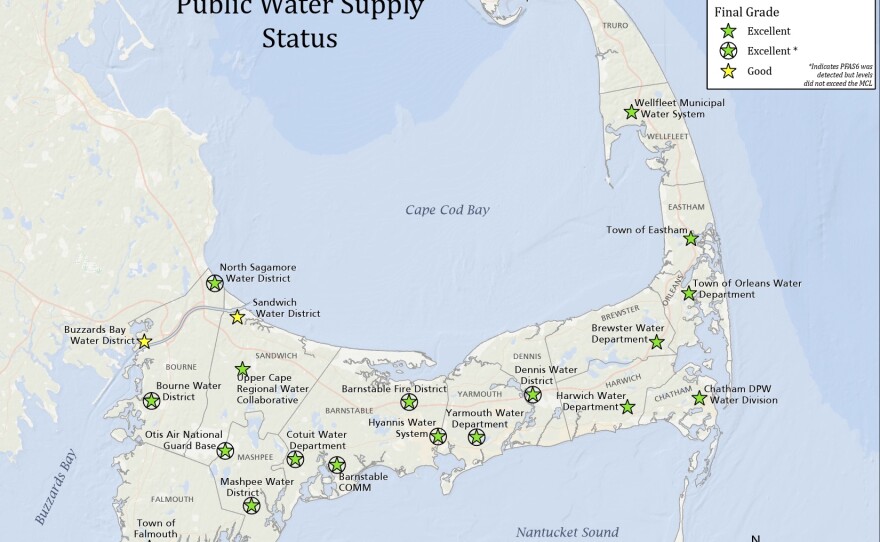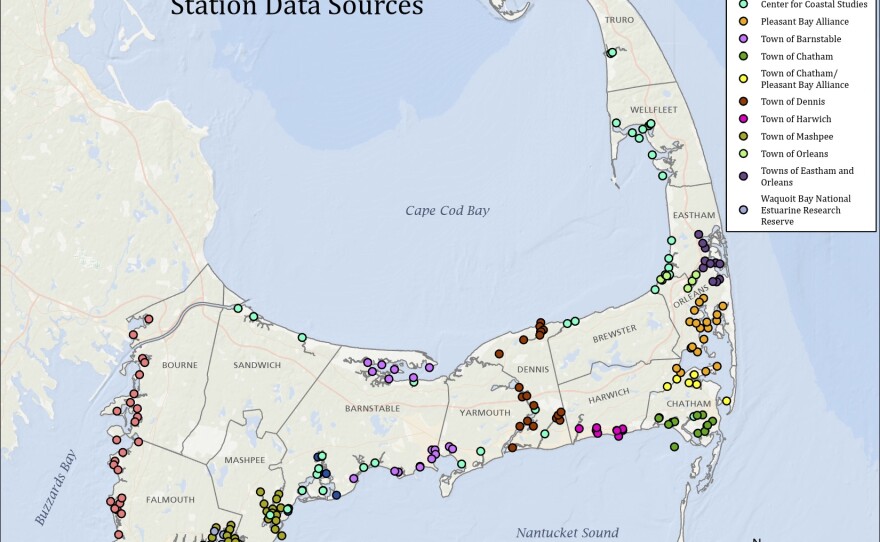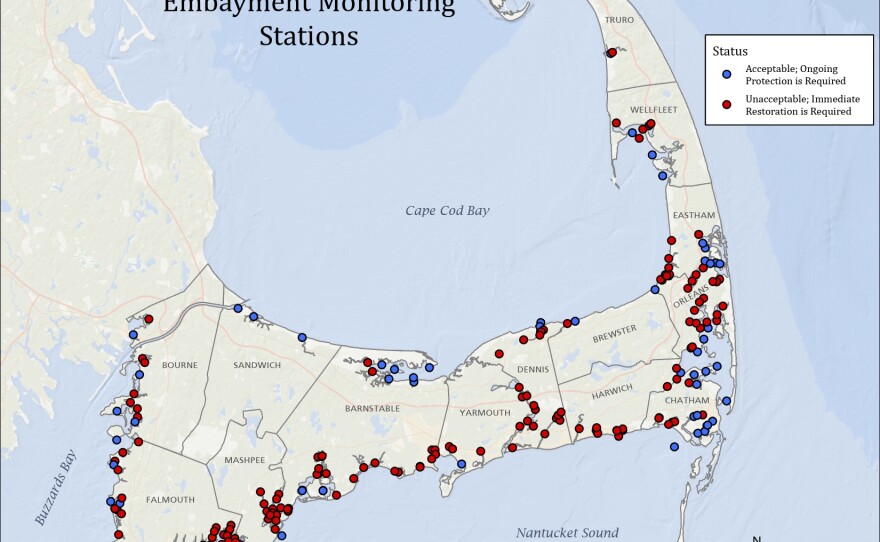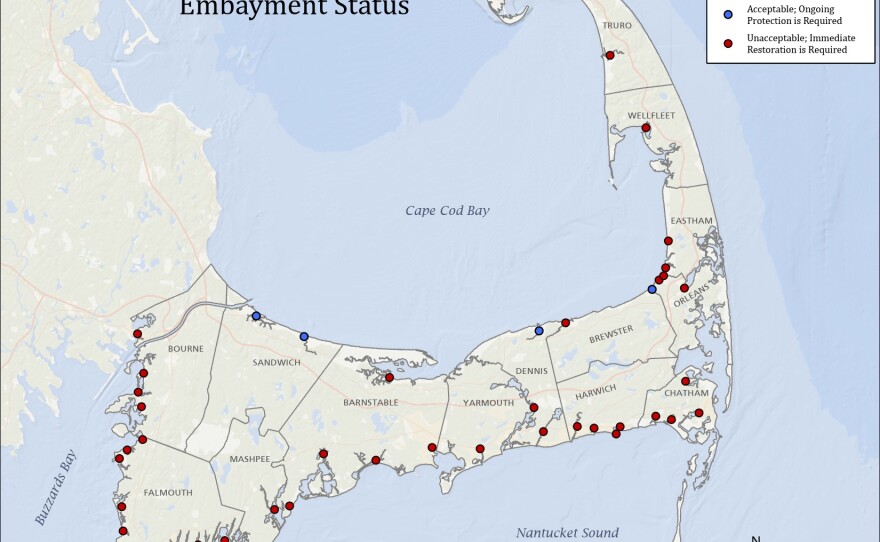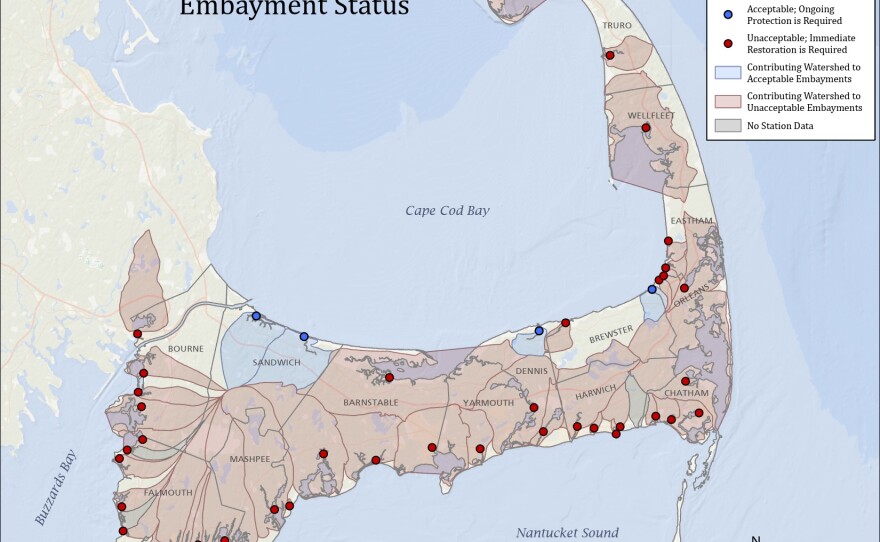The quality of drinking water from water supplies across Cape Cod remains mostly excellent, but a significant number of ponds and embayments continue to have unacceptable water quality, according to a new report.
Today, the Association to Preserve Cape Cod (APCC) released its fifth annual State of the Waters report, which has compiled thousands of data points from towns, organizations, and other sources across the region.
APCC’s executive director Andrew Gottlieb said the good news is that some communities have recently ramped up efforts to reverse the impacts from decades of nutrient pollution in water bodies across the Cape, but it’s still too early in most instances to see signs of improvement.
“Things are bad. But we've turned the corner in many respects, both financially and in regard to regulations,” he said. “And there's an expectation from the voters that they want their towns to fix it. And that's a big difference.”
APCC is urging towns to protect the region’s sensitive natural resource areas and take advantage of funding opportunities for wastewater infrastructure projects to address the primary cause of poor water quality: nitrogen pollution from stormwater runoff, fertilizers, and septic systems.
Drinking water remains mostly excellent
Of the 21 drinking water supplies, 19 got an “Excellent” grade — and it’s the first year no water supplies got a “Poor” grade.
Just two public water suppliers in the last year, the Buzzards Bay Water District and the Sandwich Water District, were graded as having “Good” water quality after detecting bacteria.
But, Gottlieb said, there continue to be issues in drinking water with PFAS chemicals.
“Ten of the 21 public water supply systems found PFAS in the water,” he said. “The finished water delivered to customers meets standards … but [PFAS contamination] is relatively ubiquitous across the region and something I don't think we fully have a handle on yet.”
The chemicals have been linked to cancer, fertility issues, immune disorders, and more.
Water quality in ponds and embayments steady but poor
The report found that 90% of coastal embayments with available data had unacceptable water quality, the same percentage as the year prior.
Cape Cod Bay continued to have the largest number of embayments — four — with acceptable water quality. But Pleasant Bay and Nauset Estuary received unacceptable grades, as did every embayment around Nantucket Sound and Buzzards Bay with the exception of Quissett Harbor.
No embayments improved since last year, and, in fact, over the past five years of reporting, the number of embayments with unacceptable water quality steadily increased to the high of 43 embayments, which was documented last year and again this year.
The news was only marginally better in freshwater environments.
More than a third of ponds — or 37 percent — with available data had unacceptable water quality. That number, which takes into account water clarity, cyanobacteria growth, and other health indicators, has remained relatively consistent since the reporting began five years ago.
Still, Gottlieb said, he believes the region could see improvements in the not-too-distant future. Communities that have taken action on wastewater, he suspects, will benefit.
“[In] Chatham, Harwich, Orleans, Barnstable, some limited areas in Falmouth,” he said, “where there's been enough project activity and enough septic systems that are starting to come off line, we might start to see some improvement. But generically we're looking at ten years before we begin to see broad-scale improvement.”


